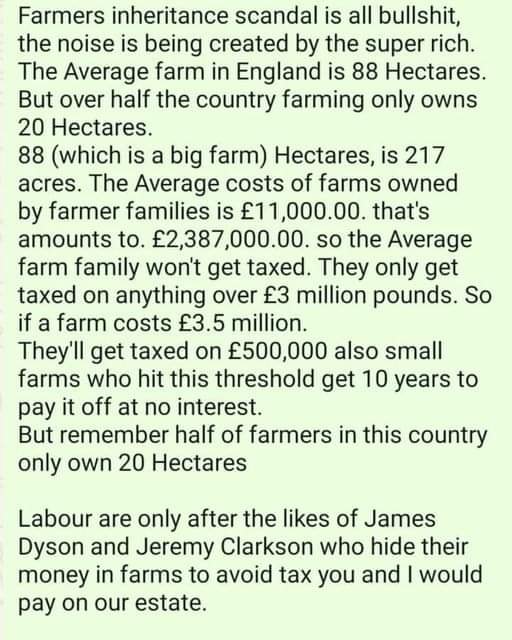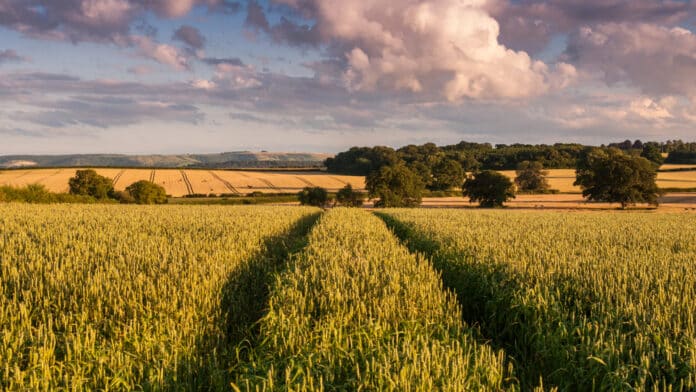DEFRA secretary Steve Reed has said “Only the richest estates will be asked to pay – not small, family farms”. According to the Chancellor, 72% of farms won’t be affected, with the treasury estimating that just 500 farms per year expected to pay more tax.

Issues to be considered
For many landowners, taxation, particularly on agricultural assets, has often seemed an exception. That changed with the Chancellor’s Autumn Budget, which introduced significant reforms to inheritance tax rules, sparking widespread concern in the farming community. These changes are set to reshape how agricultural land and businesses are passed down through generations, transforming a long-standing norm.
The reforms focus on capping Agricultural Property Relief (APR) and Business Property Relief (BPR), which have historically provided 100% inheritance tax exemptions on agricultural and business property, regardless of value. Under the new rules, relief will now be capped at £1 million for combined agricultural and business assets. Any value exceeding this threshold will be subject to a 20% tax, payable over ten years without interest. Nevertheless, certain strategies, such as transferring property at least seven years prior to death or using combined tax allowances for couples, could mitigate the impact. In some cases, farms may pass on up to £3 million tax-free.
The stated aim of these changes is to prevent misuse of tax reliefs as shelters for the ultra-wealthy. Farmland has long been an attractive investment for high-net-worth individuals seeking to reduce tax liabilities, contributing to inflated land prices. These inflated values have made it difficult for new entrants to farming, tenant farmers looking to buy land, and local communities seeking to acquire land. The reforms aim to curb this trend and create fairer opportunities for those genuinely invested in agriculture.
Despite these intentions, the changes have generated significant controversy. The government asserts that only the wealthiest estates will be affected, claiming that 72% of farms will remain unaffected. Treasury estimates suggest that only 500 farms per year will face increased tax bills. However, farming organisations such as the National Farmers’ Union (NFU) and the Country Land and Business Association (CLA) challenge these figures, highlighting that the combined value of land, machinery, and buildings on many family farms could exceed £1 million. According to DEFRA’s own data, as many as 66% of farms could see higher tax liabilities.
Critics also warn of the disproportionate impact on small and medium-sized family farms, which are often asset-rich but cash-poor. Farming incomes have been squeezed by monopolistic supply chains, with farmers receiving less than 1% of the profits from the food they produce, according to Sustain. Meanwhile, supermarkets and large agribusinesses continue to post substantial profits, exacerbating financial pressures on smaller farms.
This economic strain has contributed to a 4.6% decline in full-time agricultural workers in 2023, as the financial, physical, and mental toll of farming grows unsustainable. While capping APR and BPR is a step towards reform, the policy lacks nuance and risks penalising family farmers while failing to effectively target ultra-wealthy landowners who exploit the system.
A more balanced approach would tie tax reliefs to public goods and environmental stewardship. Farmers engaged in habitat creation, flood management, and sustainable food production could receive exemptions. Increased investment in nature-friendly farming—such as the proposed £700 million for England—could further support this approach, ensuring agriculture plays a vital role in ecological restoration and food security.
Ultimately, reforming inheritance tax is only one piece of the puzzle. Addressing broader inequalities in the food supply chain is crucial. Stronger regulation of large agribusinesses and supermarkets could help redistribute wealth, improve farmers’ livelihoods, and create a fairer, more sustainable agricultural system.







